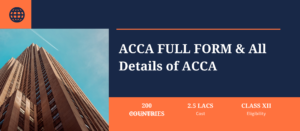Last updated on June 28th, 2024 at 04:16 pm
So I had my first experience of the scope of auditing, when I first started my business. Before that compliance and book keeping was very simple at the individual level. And if you see at a very bird eye’s level, auditing is basically a means to check if you are telling the truth to the government. After all the authorities cannot practically check the books of each business’s individually.
That’s the reason why chartered accountant bodies are made in countries, who then become agents of compliance.
A small Example to Explain the scope of auditing
In India companies are now following Indian As (Indian accounting standards) which is closely based on IFRS.
Now let me take a simple example;
John started a business of distributing CBSE approved books in India. The First lot of books that he received was for INR 500 Per unit. Now, he gets a bulk order from St.Joseph School, pune to purchase 1000 units. So he decides to offer it at INR 900 per unit, instead of INR 1200.
What do you think should we record as revenue?
- You might be tempted to think; well since you sold at INR 900 per unit. Then revenue should be INR 900 x 1000= INR 9 Lacs.
- Then you prepare your financial statements as INR 9 Lacs revenue and send your financial statements to the chartered accountant.
Your friendly CA, calls you up to say that you cannot show revenue as INR 9 lacs because, Indian AS 115 has a method. The method says that revenue should be recognised including the trade discounts. While the expenses can show the discounts separately.
So auditing is basically ensuring you are compliant with the standards of accounting. That’s the scope of auditing in a nutshell.
Scope of Auditing: Exhaustive List
Just like a company follows an accounting standards to report true and fair view of its books.Similarly there are laws and regulations related to standards of auditing.
Preparation of Financial Statements
The first and most important beginning place is the statements. So it’s like a map, and the auditor looks whether the map itself is correct according to the standards. Some of the important steps that audit involves here are;
- Do the statements have material errors?
- Secondly, has the management provided unrestricted access to financial records?
- Have you presented the relevant assumptions as given in the accounting standards
- Does the financial statement portray a fair view of the company’s performance.
Audit Process & Reporting
The second aspect of auditing is for the auditor themselves to follow a framework of auditing. For example;
- Judging the sufficacy of audit evidence
- Using professional judgement
- Professional skepticicism- meaning to check everything irrespective of the situation.
- Ensuring that you as an auditor are independent of the entity being audited
Conformity with the Accounting Standards
One of the main scope of auditing is to ensure that the financial statements conform to accounting standards. Where it’s expected that any company would ensure that its financial statements compliant to accounting standards. But the role of the external auditor is much more than that namely;
- Has the company applied the accounting standards consistently. or does it keep changing.
- Does the company have justifiable reasons to change certain assumptions.
- In special cases has the company also shown the retrospective effect.
- Are there enough disclosures required to be presented according to the accounting standards.
Internal Controls
Auditors have a special role to form an opinion to obtain reasonable assurance that the company has strong internal controls. Let me give you some examples which will make this clear.
- If you are the responsible person to approve purchase, but you are also the one to give then requirement.
This is an example of poor internal control, where errors and frauds are due to happen.
- Restriction on access to financial system.
If there are no checks to control the access to the financial systems then misuse of invoicing or manipulation of documents can take place.
- Reconciliation Process
As an auditor you are concerned and would want to assesss the reconciliation process of the company. Does the company regularly reconcile its various entries and cash balances.
Verification of Assets & Liabilities
To effectively and efficiently comply with the legal requires of audit, it is necessary for verification of assets of a company. This is to ensure that there are no bogus laundering of money to create fake assets in the company’s books.
The verification now a days is done in multiple ways;
- Visual inspection- very important to assess any difference between the written values and actual existence of assets.
- Bar code scanning-Every asset which has been coded can be verified efficiently by scanning their bar codes.
- Sample Testing-In some cases where the the size and scale of assets is very high, in such cases sample testing can be performed to ensure reliability.
Forming an Opinion
At the end of any audit, the auditor has to give an opinion as to the fairness of the data presented. Also the auditor can give their reservations on certain items presented. If in case there are serious errors and misrepresentation then auditors can also connect authorities.
Objectives of Internal Auditor
So a sibling of external audit, scope of work in internal audit has increased over the years. By definition internal audit scope of work includes, an internal process of continuously appraising and maintaining the book of accounts. let me summarise some main objectives of internal audit.
- Serves the management with recommendation on internal controls, risk assessment etc
- The internal audit is a part of internal controls but separate function and independent.
- Assist the board of directors in discharging the governing responsibilities.
This in the Indian context is even more important because of the SEBI Rules. As per the SEBI listing rules clause 49 of the listing agreement.
- The chief executive officer and chief financial officer have to certify and take the responsibility of internal controls and have shared the weakness is their current systems.
- They are also required to inform the audit committee on any changes in internal control. Or any change in accounting policies
Companies Act 292 A- Internal Auditor
As per the statutory requirements, for any company with a paid capital of above Rs 5 crores. The internal auditor is expected to participant in the audit committee meetings.
Internal Audit Standards Board
over the years internal auditing has become so important that, ICAI has actually set up a standard body for it.
Objectives of this board is to;
- To review the the current practices of internal auditing in India
- Publish standards of internal audit
- Create guidance notes for internal audit
- Assisting in clarifying any issues related to IA.
- To organise technical assistances meetings of internal audit.
Nature of Audting
The nature of auditing are important factors to know before performing the accountant tactics. In this section, the nature of auditing are mentioned in detail.
Nature & Scope Of Auditing:
- Audit is a methodical and scientific review of a company’s books of accounts.
- An audit is carried out by an impartial individual or group of people who are competent to do the task.
- Its a validation of the detailed financial account’s results as well as the condition of affairs as displayed on the balance sheet.
- A thorough examination of the accounting and internal control systems.
- Vouchers, papers, information, and explanations acquired from the authorities use it to conduct the audit.
- The auditor must be satisfied with the financial statements’ validity and certify that they present a genuine and fair picture of the company’s financial situation.
- In order to establish the correctness of the books of accounts, the auditor must inspect, compare, check, review, and scrutinize the vouchers supporting the transactions, as well as examine correspondence, minute booklets of stock owners, directors, Memorandum of Association, and Articles of Association, and other documents.
Limitations of Auditing
After discussing all the dyanmics of auditing and the principles, I would be not doing Justice to this topic without its limitations. If there was no limitations, then all the companies in India would be successful and fair. But that’s not the case. let me list out some very practical limitations of auditing.
- Time, Fees & Scale
Think about this. If you were running an auditing firm and you get an assignment for external audit to audit a company. Let’s suppose the company is into the business of producing cement. There are four plans in Maharashtra and one in Karnataka.
Now the audit fees that you get is around INR 10 Lacs. Would you have the resources to justify the quality of audit to perform and release the most impeccable audit report? In most of the situations in India, this is the major audit limitation.
- Fraud Detection Rare
If auditors were experts in pointing out irregularities then there would be big cases like the Satyam scam. Or the vanishing of Cox and kings the travel company. Or ENRON case in U.S. The major reason for this is that a fraud can be done, while following all the rules and regulations.
- Relationships
Its practical that every year you have a firm that performs, the auditing of your books. While publishes your financial position, each financial year. There is a high chance that that the auditor will eventually get biased.
Conclusion
In my opinion auditing especially external audit doesn’t make sense at all. Instead the external audits should be done on a sampling basis. Where the ministry of corporate affairs basically randomly assigns chartered accountants and firms to perform external audits of the companies. This will ensure self compliance and saving of resources.



